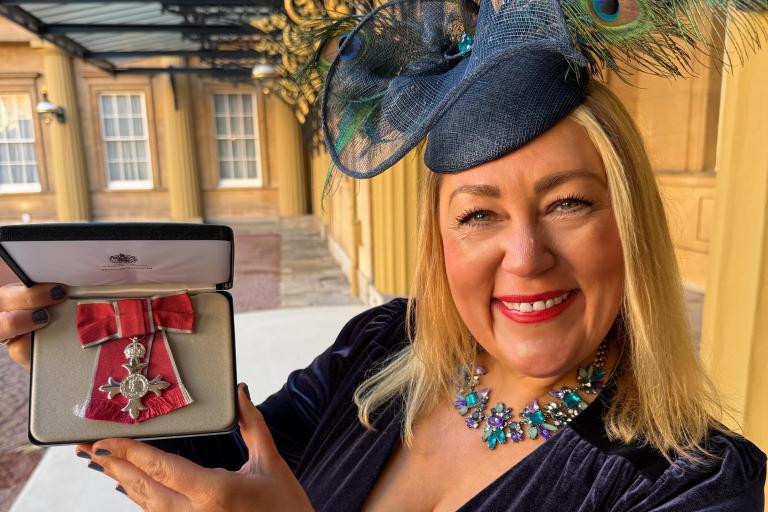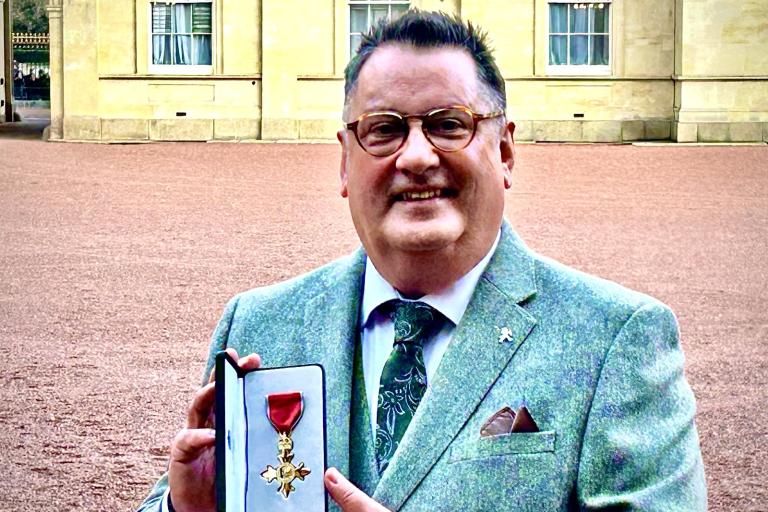Honours Nominations

Jayne Moorby from Barrow, and head of marketing at Oxley Developments in Ulverston, collected her MBE for services to the defence and aerospace industry, at Buckingham Palace in January 2025
Honours are awarded twice a year to people from all walks of life who have demonstrated outstanding service to the community, on The King's official Birthday in June, and at the New Year.
Honours are not awarded for long service alone, but for outstanding quality and lasting legacy. They must still be actively involved in what they are being nominated for. The only honours which can be awarded after someone’s death are gallantry awards.
A strong nomination is likely to be for someone who:
- Is active and has sustained an impactful contribution over several years
- Has a positive influence on others
- Has demonstrated a community benefit or sector-wide innovation
- Has gone above and beyond the expectations of a job or role
Whether someone gets an honour - and the honour they get - is decided by honours committees covering arts and media; community and voluntary service; business and the economy; education; health and social care; science, technology and research; sport; parliamentary and political service; and public service.
The committees' recommendations go to the Prime Minister and then to the King, who awards the honour.
Types of honours
The national honours are:
- BEM (British Empire Medal): for hands-on service and community dedication
- MBE (Member of the Order of the British Empire): for significant achievements and local impact
- OBE (Officer) and CBE (Commander): for regional or national impact
- Knighthoods and Damehoods: for exceptional national or international influence
National honours are for individuals, so if you are thinking of nominating a group or organisation please look at our pages on the King’s Award for Voluntary Service and King’s Award for Enterprise.
There are also separate honours systems for public sector workers and military personnel; nominations for these individuals should be submitted though their relevant department or ministry.
How to nominate
Anybody can nominate an individual for a UK honour through the "open access" system. However, we would advise against nominating a family member. It is much better for the nomination to be submitted from an unrelated individual.
The nomination procedure is confidential i.e., the person you are nominating must not know that they are being or have been nominated. This doesn't mean however that you can't get others to help you with the nomination.
There is no deadline for the receipt of completed nomination forms, although it should be borne in mind that nominations take at least 12-18 months from submission to outcome but may take significantly longer.
If you are thinking of making a nomination, please take the time to read the advice from the Cabinet Office so that you can present your nomination in the best possible way.
When writing a citation, you don’t say what level of award you are hoping to secure for the nominee. This is decided by the Honours Committees.
When you are ready to make a nomination you can make a nomination online or download a nomination form
The Lieutenancy's role
The Lord-Lieutenant is unable to nominate, however a local Deputy Lieutenant may be able to assist and advise prior to submitting your nomination. If you would like to get in touch with a Deputy Lieutenant please contact the Lieutenancy Office.
Recent Cumbria
Honours recipients
For lists of recent Cumbrian recipients of national honours see our Cumbrian Honours page.

Professor Brian Webster-Henderson, deputy vice chancellor of the University of Cumbria and professor of nursing, collected an OBE for services to the NHS and to education at Buckingham Palace in January 2025
